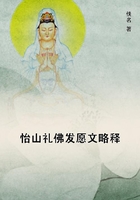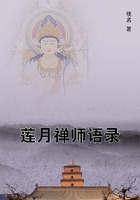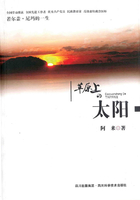1. It is a common saying that nature maketh nothing in vain.
And it is most certain, that as the truth of a conclusion, is no more but the truth of the premises that make it; so the force of the command, or law of nature, is no more than the force of the reasons inducing thereunto. Therefore the law of nature mentioned in the former chapter, sect. 2, namely, That every man should divest himself of the right, &c. were utterly vain, and of none effect, if this also were not a law of the same Nature, That every man is obliged to stand to, and perform, those covenants which he maketh. For what benefit is it to a man, that any thing be promised, or given unto him, if he that giveth, or promiseth, performeth not, or retaineth still the right of taking back what he hath given?
2. The breach or violation of covenant, is that which men call INJURY, consisting in some action or omission, which is therefore called UNJUST. For it is action or omission, without jus, or right; which was transferred or relinquished before.
There is a great similitude between that we call injury, or injustice in the actions and conversations of men in the world, and that which is called absurd in the arguments and disputations of the Schools. For as he, that is driven to contradict an assertion by him before maintained, is said to be reduced to an absurdity; so he that through passion doth, or omitteth that which before by covenant he promised not to do, or not to omit, is said to commit injustice. And there is in every breach of covenant a contradiction properly so called; for he that covenanteth, willeth to do, or omit, in the time to come; and he that doth any action, willeth it in that present, which is part of the future time, contained in the covenant: and therefore he that violateth a covenant, willeth the doing and the not doing of the same thing, at the same time; which is a plain contradiction.
And so injury is an absurdity of conversation, as absurdity is a kind of injustice in disputation.
3. In all violation of covenant, (to whomsoever accrueth the damage) the injury is done only to him to whom the covenant was made. For example, if a man covenant to obey his master, and the master command him to give money to a third, which he promiseth to do, and doth not; though this be to the damage of the third, yet the injury is done to the master only. For he could violate no covenant with him, with whom none was made, and therefore doth him no injury: for injury consisteth in violation of covenant, by the definition thereof.
4. The names of just, unjust, justice, injustice, are equivocal, and signify diversely. For justice and injustice, when they be attributed to actions, signify the same thing with no injury, and injury; and denominate the action just, or unjust, but not the man so; for they denominate him guilty, or not guilty. But when justice and injustice are attributed to men, they signify proneness and affection, and inclination of nature, that is to say, passions of the mind apt to produce just and unjust actions. So that when a man is said to be just, or unjust, not the action, but the passion, and aptitude to do such action is considered. And therefore a just man may have committed an unjust act; and an unjust man may have done justly not only one, but most of his actions. For there is an oderunt peccare in the unjust, as well as in the just, but from different causes; for the unjust man who abstaineth from injuries for fear of punishment, declareth plainly that the justice of his actions dependeth upon civil constitution, from whence punishments proceed; which would otherwise in the estate of nature be unjust, according to the fountain from whence they spring. This distinction therefore of justice, and injustice, ought to be remembered: that when injustice is taken for guilt, the action is unjust, but not therefore the man; and when justice is taken for guiltlessness, the actions are just, and yet not always the man.
Likewise when justice and injustice are taken for habits of the mind, the man may be just, or unjust, and yet not all his actions so.
5. Concerning. the justice of actions, the same is usually divided into two kinds, whereof men call the one commutative, and the other distributive; and are said to consist, the one in proportion arithmetical, the other in geometrical: and commutative justice, they place in permutation, as buying, selling, and barter. distributive, in giving to every man according to their deserts. Which distinction is not well made, inasmuch as injury, which is the injustice of action, consisteth not in the inequality of things changed, or distributed, but in the inequality that men (contrary to nature and reason) assume unto themselves above their fellows; of which inequality shall be spoken hereafter. And for commutative justice placed in buying and selling, though the thing bought be unequal to the price given for it; yet forasmuch as both the buyer and the seller are made judges of the value, and are thereby both satisfied: there can be no injury done on either side, neither party having trusted, or covenanted with the other. And for distributive justice, which consisteth in the distribution of our own benefits; seeing a thing is therefore said to be our own, because we may dispose of it at our own pleasure: it can be no injury to any man, though our liberality be further extended towards another, than towards him; unless we be thereto obliged by covenant: and then the injustice consisteth in the violation of that covenant, and not in the inequality of distribution.















